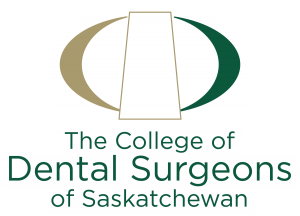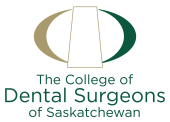Complaint Process
COMPLAINT/CONCERN RESOLUTION PROCESS
FOR YOUR INFORMATION
- All dental patients have the right to informed choice and the right to expect professional care from their dentists. If you have concerns with the professional care you have received, please attempt to first discuss your concerns with your dentist. If you still have concerns, you can contact the College of Dental Surgeons of Saskatchewan (CDSS) for more information or submit a written complaint.
- The role of the CDSS is to regulate the profession to ensure the safety of the public in dental health matters. Complaints are processed according to the Dental Disciplines Act (1997) (DDA) by the Professional Conduct Committee (PCC). Concerns from third party payers/insurance companies will be addressed by this same process.
- The Complaint Resolution Process cannot promise recovery of treatment costs to patients or third-party payers and does not consider compensation for pain, suffering, travel, and other costs related to treatment provided by a CDSS Registrant. Some financial remedies may be included in a PCC Consent to Conditions Agreement or a Discipline Committee decision.
- Before, during, or following the complaint, you may want to seek legal advice regarding remedies for pain, suffering, travel reimbursement, and other costs. Please note that under the Statute of Limitations, there is a limited time frame during which you can initiate this type of civil action which would be addressed and determined by the courts on its own merit.
- Section 25.2(1) of The Dental Disciplines Act states that the CDSS cannot proceed with a complaint against a CDSS Registrant more than two (2) years after the day he or she is no longer licensed in Saskatchewan.
THE CDSS COMPLAINT PROCESS
The intention and purpose of submitting a complaint to a regulatory authority is in the spirit of quality assurance in the public interest to ensure the accountability of individual dentists and the overall profession in complying with the best practices, standards, and professionalism of dental care.
- Upon receiving the signed, fully completed complaint forms from a complainant, the complaint is reviewed by the CDSS Registrar to determine in the complaint has merit to be investigated by the College.
- Once the Registrar determines the case can be investigated, the College office will request the dentist named in the complaint to respond specifically to the written complaint.
- The complaint is then reviewed and investigated by members of the Professional Conduct Committee. Depending on the relevant information provided, the PCC may investigate the matter by taking any steps it considered necessary (DDA sec. 30(1)).
- There is no set timeline for when a PCC investigation will be resolved. The PCC does their best to handle all complaints in a timely manner, however, due to the variability of complaints and/or concerns, there is no way to predict how long the investigative process will take. The average complaint is processed in approximately 6 to 12 months.
THE CDSS COMPLAINT RESOLUTION PROCESS
The Professional Conduct Committee shall provide a copy of a “Written Report” to the Discipline Committee containing the PCC decision per the DDA section 29(3) as follows:
a) make a written report to the discipline committee recommending that the discipline committee hear and determine the formal complaint set out in the written report;
b) make a written report to the discipline committee recommending that no further action be taken with respect to the matter under investigation;
c) refer the complaint to mediation, if the professional conduct committee decides that the complaint is of concern only to the complainant and the investigated member, both of whom agree to mediation;
d) require the investigated member to appear before the professional conduct committee, or a panel of the committee, to be cautioned;
e) require the investigated member to complete a specified continuing education or remediation program;
f) accept the voluntary surrender of the investigated member’s registration or licence;
g) accept an undertaking from the investigated member that provides for one or more of the following:
(i) assessment of the investigated member’s capacity or fitness to practise in the profession;
(ii) counselling or treatment of the investigated member;
(iii) monitoring or supervision of the investigated member’s practice;
(iv) completion by the investigated member of a specified course of studies byway of remedial training;
(v) placing conditions on the investigated member’s right to practise in the profession;
h) take any other action that the professional conduct committee considers appropriate that is not inconsistent with or contrary to this Act or the bylaws.
Details of an investigation and conditions within a Consent to Conditions agreement will not be shared with the complainant, unless it is imperative for the complainant’s sake of the investigation, such as reimbursement of treatment costs or an apology.
The PCC shall provide a copy of the “Written Report” (DDA sec. 29(6)) to:
a) The College council;
b) The complainant, if any; and
c) The member whose conduct is the subject of the complaint.
Details of a Consent to Conditions agreement or of a PCC investigation will not be shared in the “Written Report” (so as not to bias or contaminate a discipline hearing panel if the matter is not resolved by 29(3)(b – h)).
Please send completed forms to:
*Aggressive, disrespectful, and abusive behaviour or comments towards College staff will not be tolerated. Thank you for being considerate.*
Complaints and Concerns
If you have concerns about a dentist’s service or conduct, we are here to help.

